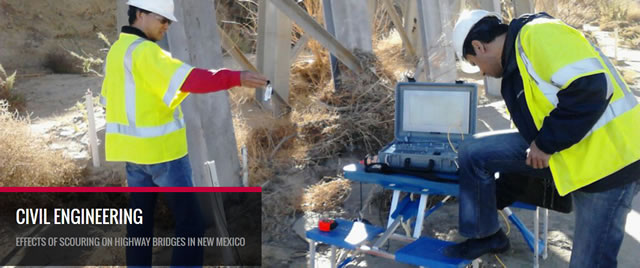
Civil Engineering ETDs
Publication Date
10-16-2014
Abstract
The main goal of the thesis is to develop a constitutive damage model for simulating tensile fracture of concrete using the micropolar peridynamics model. Micropolar peridynamics was proposed by Gerstle in 2007 as a generalization to the bond based peridynamics method introduced by Silling in 2000, which was only capable of handling materials with specific Poissons ratios. Inspired by the bilinear cohesive model in the cohesive crack approach, a new constitutive damage model is proposed to simulate the tensile fracture of a normal-strength concrete. Laboratory experimental data for crack mouth opening displacement vs. load of notched beams, obtained by Chapman in 2011 which are of three different sizes, are used to calibrate the model. It is shown that the simulation results obtained from modeling match very well with those from laboratory experiments, and the size of the fracture process zone, the damage, and cracking patterns are match experiment as well. As a part of the research the isotropicity of the hexagonal particle lattice , proposed by Gerstle in 2011 and used in our simulations, is shown analytically, and the critical time step of the explicit time integration method, which is used to solve the governing equations, is determined.'
Keywords
Peridynamics, Concrete, Fracture
Document Type
Thesis
Language
English
Degree Name
Civil Engineering
Level of Degree
Masters
Department Name
Civil Engineering
First Committee Member (Chair)
Ross, Timothy Jr
Second Committee Member
Arup, Maji Jr
Third Committee Member
Gerstle, Walter Jr
Recommended Citation
Aziz, Asadollahi. "Simulation of Fracture of Concrete Using Micropolar Peridynamics." (2014). https://digitalrepository.unm.edu/ce_etds/97
